Search
Viewing 2145 to 2160 of 3120 news
-

Projet PALIM au Maroc: la parole est aux jeunes!
Meriem HILALI | 15/07/2020
Doter les jeunes de compétences, notamment techniques et professionnelles, nécessaires à l’emploi, à l’obtention d’un travail décent et à l’entrepreneuriat tel était l’un des objectifs principaux du projet PALIM. Tout au long de la formation, les jeunes n’ont pas cessé de montrer leur motivation, rapidité d’apprentissage et surtout leur flexibilité et leur adaptabilité face à ces conditions exceptionnelles du Covid19. En cette #journéemondialedescompétencesdesjeunes, découvrez leurs témoignages en vidéo !
-
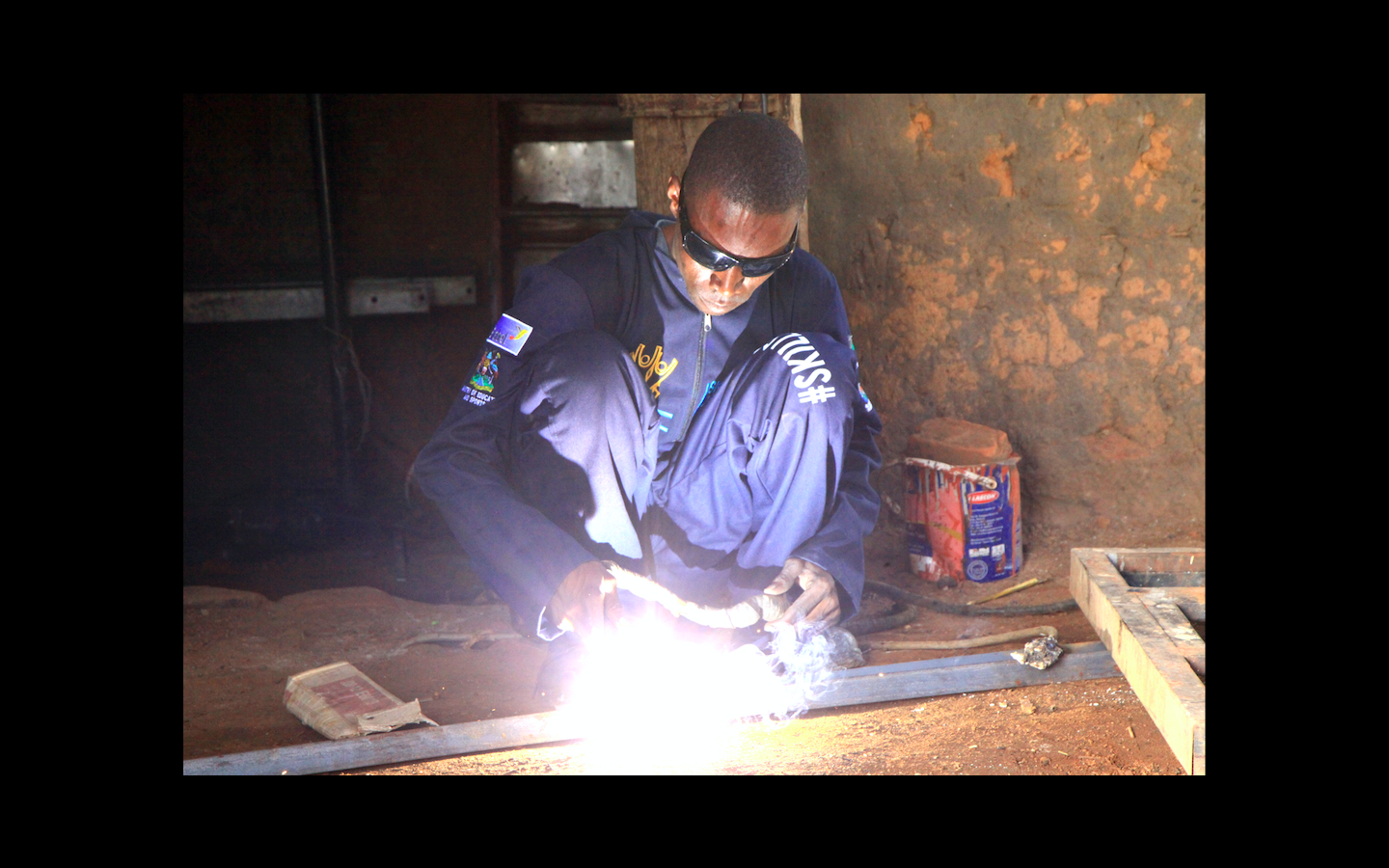
How skilling has turned Emmanuel from a casual worker to an entrepreneur - Uganda
Joseph BASOGA | 14/07/2020
Onoit Emmanuel, has been through a lot to become the experienced welder that he is today. He has done many odd jobs. Emmanuel started off as a casual laborer offering manual labor in his community for pay as little as UGX 10,000 ($2) a day. He then served as a worker at many construction sites and later as a security guard under G4C security group, providing free services in the company’s electronic shop in Jinja in exchange for food and shelter. The young skilled welder from Nakapiripirit Vocation Institute in Karamoja is happy to be a professional welder and metal fabricator. “This skill is my life, it puts food at my table and has earned me respect in this place” he affirms, adding that the youth in the area have now given the titles “Ekapolon” (to mean boss in local dialect) Luck came his way when an advert was pinned on a mango tree at the Uganda Technical College Elgon, where he had dropped out of school because he could not afford fees. Enable with funding from Ireland Embassy was recruiting Karamajongs willing to acquire practical skills for development. Onoit who had earlier attended technical training in a non-registered school in Mbarara, had spent all his little savings to give him an education only to get a fake certificate. “This opportunity wiped all the tears I had cried after losing my money to a fake institute” he speaks with emotion. “I could not let this opportunity by-pass me” he says. After acquiring this skill, he was offered a job at a welding workshop in Nakapiripirit. Later the owner wanted to close the workshop because it was not making businesses sense. He pleaded with him and slowly by slowly he revived it, acquired equipment and moved location to set up his own. He can now afford rental space worth UGX 80, 000 per month and has built capacity of up to UGX 4,000,000 worth of assets over time. He is grateful that the programme has facilitated him to attend capacity building workshops to improve his skill.Recently he even signed up memorandum of understanding with the Nakapiripirit Vocational Institute to help train fellow students. Born to Mr. and Mrs. Among Phoebe and Onoit Michael both peasants, Onoit attended Alengot Primary school, Sajik royal college and Serere High school before joining the institute.
-

Mise en place d’une salle de supervision des plateformes unifiées Covid-19 au Burkina Faso
Kader TAPSOBA | 08/07/2020
Le Représentant Résident d'Enabel au Burkina et la Ministre du développement de l’économie numérique et des postes ont procédé ce vendredi 3 juillet 2020 à l’inauguration d’une salle de supervision et de monitoring Covid-19.Cet espace permettra d’offrir un cadre de partage entre le ministère et les acteurs de l’écosystème digital et de créer ainsi les conditions pour un renforcement des capacités. Les équipements sont composés de :-4 ordinateurs portables avec sac de protection HP ;-1 climatiseur avec télécommande et accessoire d’installation;-1 téléviseur avec support mural ;-mobilier de bureau ;-24 imprimantes 3D avec leurs accessoires qui seront livrées dans les prochains jours.Cet appui Enabel entre dans le cadre de la mise en œuvre du programme de développement économique et social inclusif et durable de la région du Centre-Est à travers l’intervention « formations, études, expertises ».Découvrez-en plus en vidéo.
-
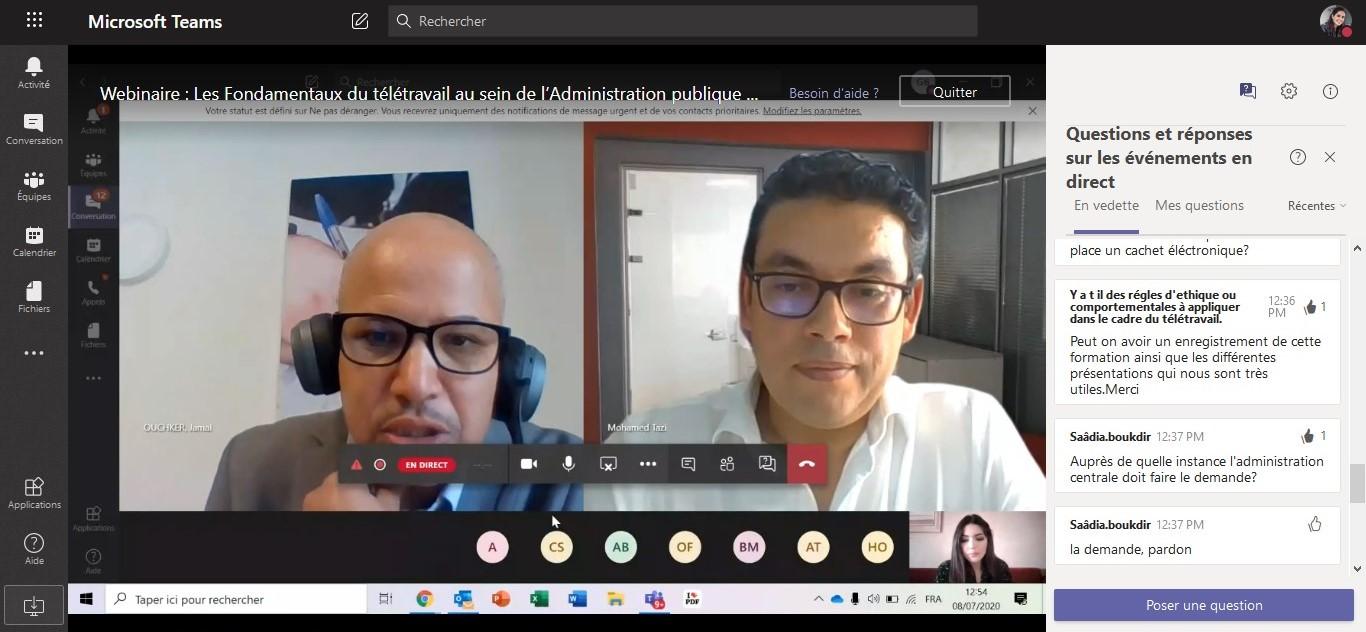
Covid-19, les fondamentaux du télétravail au sein de l’Administration publique au Maroc
Meriem HILALI | 08/07/2020
Le projet e-TAMKEEN a organisé ce mercredi 8 Juillet 2020 un Webinaire sur la thématique « Les Fondamentaux du télétravail au sein de l’Administration publique dans un contexte de crise sanitaire liée à la pandémie de Covid-19 ». Cet événement de plus de 300 participants est le coup d'envoi à une série de formations destinées aux fonctionnaires marocains de 44 organismes ministériels différents.Les formations planifiées concernent les modules suivants : - Fondamentaux du télétravail - Outils de visioconférences - Outils de collaboration à distance - Plan de continuité d’activité et gestion de crises
-

Time on Task Improving Teacher Attendance - Uganda
Dorothy KYAMAZIMA | 07/07/2020
Paper is now a thing of the past and digitalization is the in thing now. Teachers’ colleges have embraced the move to digitize their record keeping by using an attendance management system dubbed ‘Time-on-task’ to fight absenteeism of both teaching and non-teaching staff. To know more, watch this testimonial video from college staff on the impact of the Time-on-Task towards improving management and staff attendance.
-
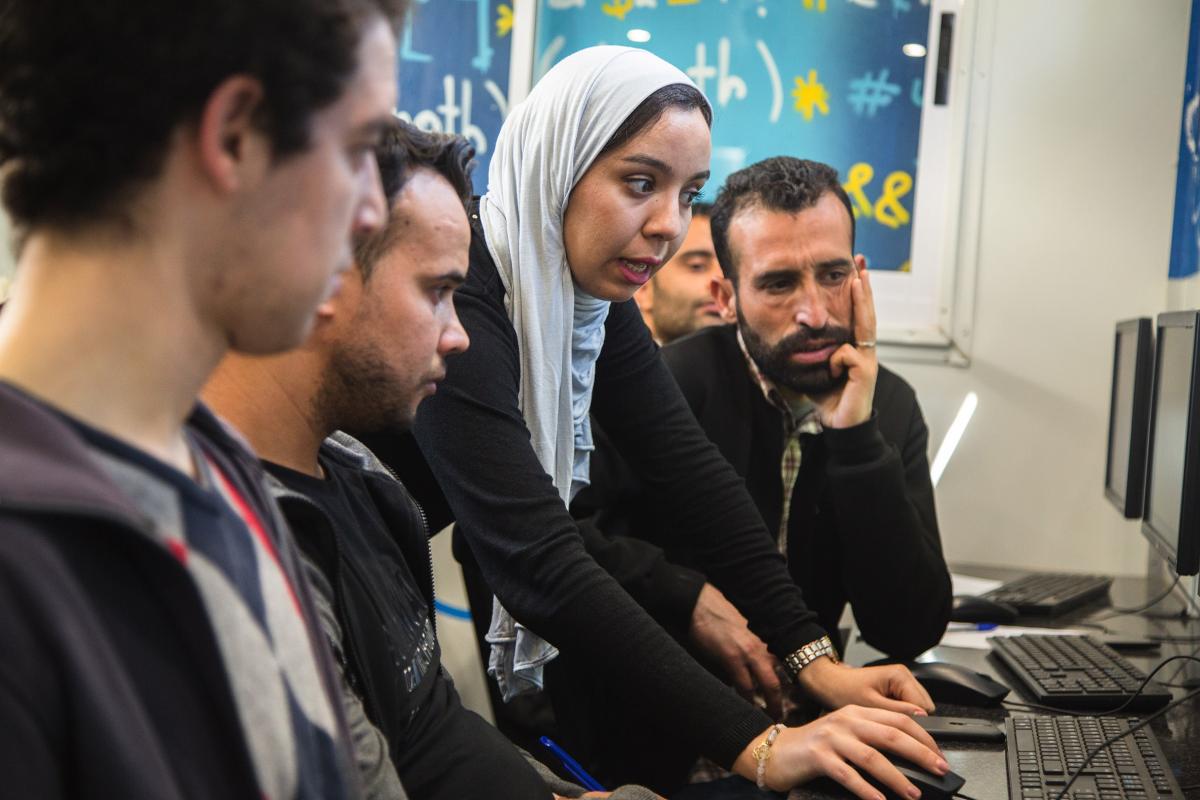
Le projet Wehubit sélectionne 5 projets innovants visant à réduire la fracture numérique par l'éducation,la formation et le monde du travail
Thibaut MONNIER | 06/07/2020
Avec ce nouvel appel à propositions, environ 1,5 million d'euros ont été attribués à cinq initiatives en Palestine, au Moroc, au Rwanda, en Ouganda et au Burkina Faso qui visent toutes à réduire la fracture numérique en favorisant la culture et les compétences numériques par l'éducation, la formation et le monde du travail.Lisez le communiqué de presse et découvrez ces beaux projets: https://www.wehubit.be/fr/projets
-
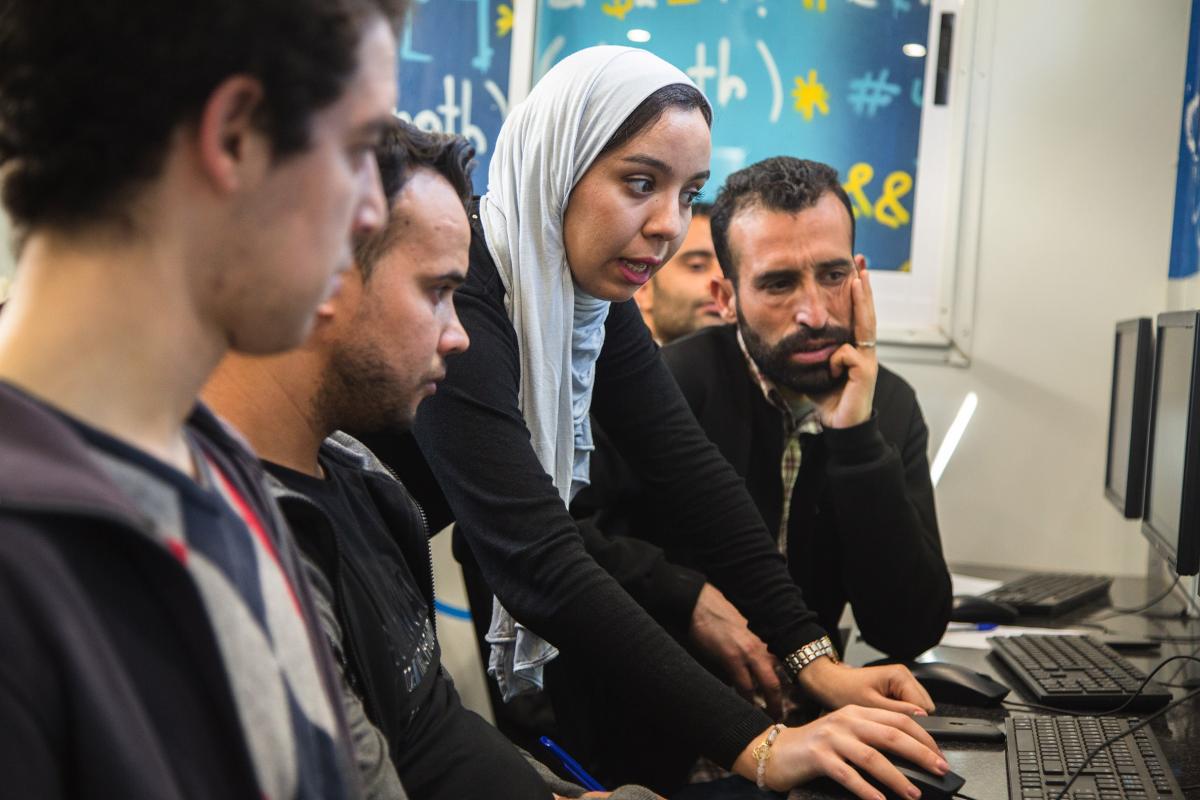
The program Wehubit selects 5 innovative projects aiming at closing the digital divide through education, training and the world of work
Thibaut MONNIER | 06/07/2020
With this new Call for proposals, approximately 1,5 million euros have been awarded to five initiatives in Palestine, Morocco, Rwanda, Uganda and Burkina Faso, all of which aim to close the digital divide by fostering the digital culture and skills through education, training and the world of work. Read the press release and discover these great projects: https://www.wehubit.be/en/projects
-

Professionnalisation des organisations professionnelles au Maroc - Vidéo
Meriem HILALI | 04/07/2020
Enabel et ses partenaires ont adopté un accompagnement de proximité au profit des organisations professionnelles (coopératives, Groupement d’Intérêt Économique et fédérations) pour la professionnalisation et l’autonomisation de leur structure. Découvrez en plus dans la vidéo jointe.
-
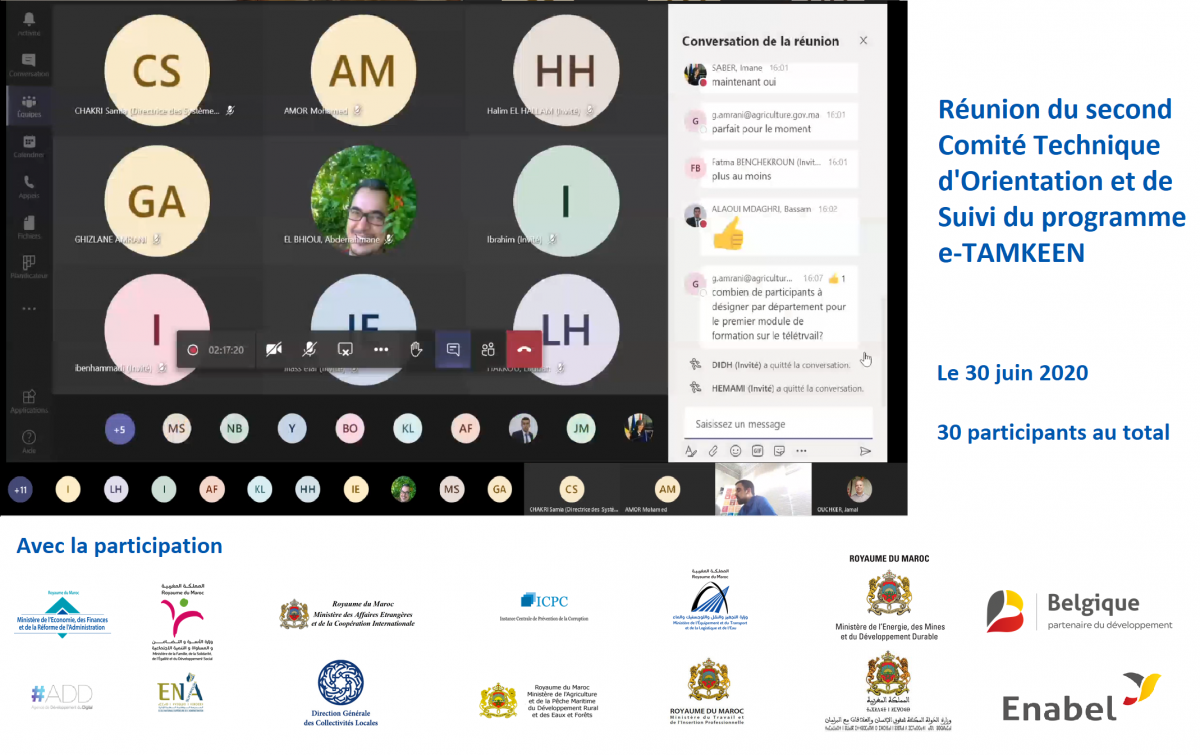
Réunion du 2ème comité technique d'orientation et de suivi du programme e-TAMKEEN - Maroc
Bassam ALAOUI MDAGHRI | 03/07/2020
Le 30 Juin 2020, le programme e-TAMKEEN de renforcement des compétences des fonctionnaires femmes et hommes au niveau central et local en matière de digitalisation, a tenu son deuxième Comité Technique d'Orientation et de Suivi de l'année 2020 de manière digitale. En effet compte tenu de la présence d'une trentaine de représentants des 14 ministères et départements partenaires du projet, il était important de maintenir le respect de la distanciation sociale et du travail à distance. Lors de cette réunion plusieurs chantiers ont été actés et validés par l'ensemble des partenaires du programme, ateliers créatifs, formations, webinaires et plusieurs autres activités seront au rendez-vous lors des prochaines semaines. Traduisant la mobilisation des conditions nécessaires qui permettent l'acquisition et la maitrise de compétences en lien avec le numérique et le digital, l’intervention "e-TAMKEEN", est centrée sur l'impulsion d'un processus de changement au sein des administrations publiques, en s'appuyant sur le levier des ressources humaines, pour une gestion plus efficace et efficiente du service public.
-
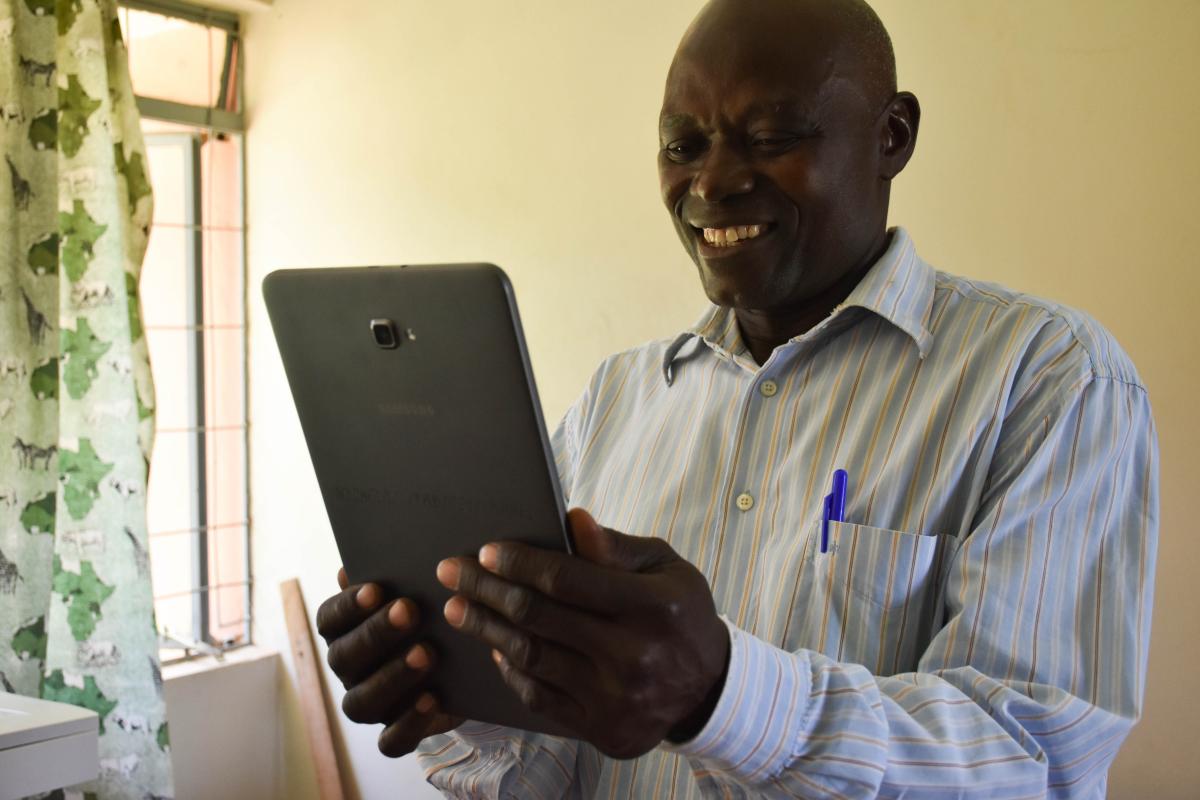
Digitalization the solution to Teacher Absenteeism - Uganda
Dorothy KYAMAZIMA | 03/07/2020
Teacher absenteeism is still one of the major challenges facing the education sector across the African continent and according to the World Bank, one the top factors leading to poor academic performance in many schools across sub-Saharan Africa. Uganda is no exception. Research puts Uganda at the second-highest country with teacher absenteeism ranking at 27% in a study conducted among 21 countries. This has trickled down to the National Teachers’ Colleges, institutions responsible for producing out qualified and competent teachers to secondary schools in Uganda. Management within the colleges has long since relied on a paper format of record-keeping to monitor the attendance of teaching staff. This meant that each teacher would have to physically sign into a book usually available in the staff room. The problem with this method is that it proved to be challenging when analysing teacher attendance as data was manually extracted and easily misused.But paper is now a thing of the past. The Teachers’ colleges have embraced the move to digitize their record keeping by using an attendance management system dubbed ‘Time-on-task’ to fight absenteeism of both teaching and non-teaching staff. The Time-on-task tool is designed to monitor NTC staff’s daily attendance through registration and results compilation with focus on their hours and days in the colleges. It uses free and open-source software to collect data known as KoBoToolbox that is easily installed on any android mobile device. Moving from paper attendance sheets to a digital format has simplified the collection, analysis and the ability to share data on teacher attendance, making it easy to monitor teacher attendance within the colleges. The time on task tool currently captures teacher attendance data daily. Both teaching and non-teaching staff sign in and out using a tablet installed within the college. The sign-in process is quite brief as the application takes a selfie as a form of signature and registers the time of the selfie. Once staff have complied with this step, the data collected is then uploaded to the server every month where it is analysed in Excel. Once the analysis is finalized, results are then shared with both staff and management of the colleges including the Ministry of Education-TIET department. This type of monitoring provides greater assurance to the colleges’ administrators that their teaching staffs are where they should be and at the right time. “Before the introduction of Time-on-task, staff absenteeism rate was very high because as management, we did not have a strong system in place to monitor staff.” Evelyn Lanyero Principal NTC Kaliro. This simple tool has had a huge impact. Since its introduction in May 2019, more and more staff are accepting the tool and using it to register their attendance during school hours. In the first month of its implementation, 26% of the staff across the five National Teachers’ Colleges registered using the digital tool in June 2019 and this number grew to 85% in December 2019. “Time-on-task has made us move to 21st-century technology and acquainted to using digital tools in everyday life.” David Physical Education Lecturer NTC Kaliro.The Time-on-task digital tool has contributed to a positive mind shift towards digitalization. Due to its efficiency and effectiveness in curbing teacher absenteeism, it has stimulated digital literacy and acceptance of more digital tools in management and in teaching & learning. This includes the use of quick-books for financial management, koha for library management and ICT tools (padlet, Google Drive) for teaching and learning within the college. Other institutions in Uganda, both public and private in education and non-education sectors are showing high interest in the tool and have requested to have it installed to track the attendance of their staff. One of these is the Muni University that is located a stone through away from National Teachers’ College Muni. After witnessing the impact of the Time-on-task in Muni Teachers’ College, they expressed interest in adopting the tool to monitor attendance within the university. The TIET department of the Ministry of Education and Sports has also embraced this tool to monitor the attendance of staff within the Ministry. Dr Jane Egau the Commissioner TIET had to say about the tool.“When we saw what was happening in the NTCs, we also requested to get this tool for the department and have noted an improvement in staff attendance. In addition to what we have seen and experienced, it is also our plan to extend it to other institutions because within teaching, time is so important and I think as we train teachers, we need to instil this character in them and this is a perfect tool to provide the example.” Even though the tool seems to stand out in curbing teacher absenteeism, the project intends to upgrade the application beyond tracking attendance to measure the quality of teaching by providing feedback forms to students. This is part of the digital transformation of National Teachers’ Colleges by the Enabel Teacher Training Education Project in partnership with the Ministry of Education and sports. It is also in line with the strategic priorities of the Digital for Development (D4D) policy by the Belgian development cooperation.
-
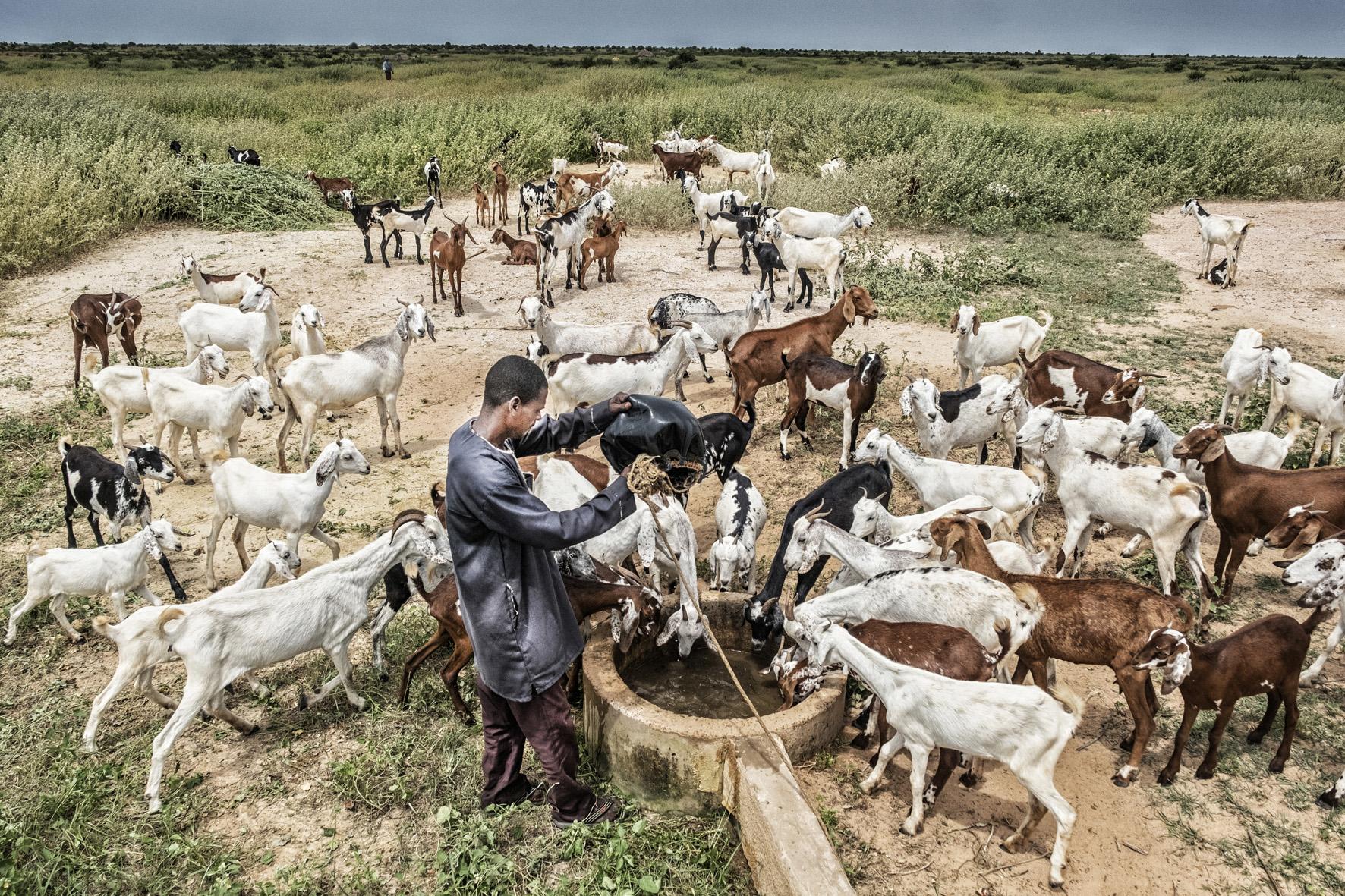
Vers des systèmes d’élevage plus résilients au Niger
Halissa HASSAN DAN AZOUMI | 03/07/2020
Financé par le Royaume de Belgique et l’état du Niger à hauteur de 16.5 millions d’euros dont 14 millions d’euros pour la Belgique et 2.5 millions pour l’Etat du Niger, ce programme vise à rendre les systèmes d’élevage plus résilients, performants et durable, dans lesquels des emplois, surtout des jeunes et des femmes sont créés ou consolidés. Il mène des actions pour le développement des filières de production animale, la valorisation et la commercialisation des produits animaux, ainsi que des interventions pour mieux gérer et protéger les ressources naturelles essentielles pour l’élevage. Ce programme intervient dans les régions de Dosso et Tahoua. Le PRADEL tant dans sa conception et que dans sa mise en œuvre reste pertinent par rapport aux besoins du groupe cible. L’année 2019 a permis de capitaliser les résultats du démarrage de l’année 2018 et d’atteindre une bonne vitesse de mise en œuvre du Programme. Les grands chantiers en termes de développement des chaines de valeur (financement, appui conseil, infrastructures structurantes, conditions d’élevage (alimentation, santé animale), structuration) ont atteint un bon niveau de maturation et pourront produire les effets nécessaires pour atteindre les résultats attendus. Il en est de même des autres chantiers, notamment les aménagements pastoraux et l’amélioration de la gouvernance du secteur de l’élevage qui connaissent également un niveau appréciable de mise en œuvre. Des dispositions sont prises pour assurer l’adhésion des populations au processus de changement dans le cadre de l’ingénierie sociale mettant un accent particulier sur l’information/sensibilisation, la concertation entre tous les acteurs des aménagements pastoraux. La mise en place d’un dispositif d’encadrement de proximité des promoteurs privés installés dans les bassins d’intervention à travers des conseillers en production et des conseillers en entreprenariat, l’élaboration de plans d’affaires préalables et leur soumission à des professionnels de financement sont les mesures prises par le PRADEL pour concourir à la réussite et la durabilité des activités économiques. Il en est de même de la mise en réseau des promoteurs prévue dans la stratégie du Programme. Quelques résultats intermédiaires importants obtenus par le PRADEL en 2019 : · - 3 services vétérinaires privés de proximité mis en place et fonctionnels en collaboration avec VSF-Belgique ; · - 312,7 km de bande pares-feux réalisés, 224,8 tonnes de fourrage dont 124,35 tonnes de cultures fourragères produites, · - 09 Projets pilotes modèles appuyés dans la boucherie, l’aviculture, la viande kilichi (viande séchée) et l’embouche ; · - 42 projets économiques financés dont 36 (85%) pour les femmes ; · - 1 324 promoteurs sensibilisés sur plusieurs thématiques (embouche, hygiène de l’habitat, suivi sanitaire des animaux, · - 4 723 personnes sensibilisées, 19 leaders formés sur la loi pastorale · - 55 ha de terre pastorale aménagés et mis en valeur (23 600 demi-lunes réalisées et 15 000 plants forestiers plantés et 500 kg ensemencés et 1 736 autres ha d’aire de pâturage en cours de restauration (marchés en cours de signature); - 105 km de couloir de passage ont été balisés (piquetage, géoréférencés et 440 autres km de couloir de passage en cours de balisage, y compris leur sécurisation légale · - Une gouvernance du secteur de l’élevage renforcée (concertations régionales, études stratégiques lancées, élaboration des documents sectoriels de bilans/programmations, etc.).
-
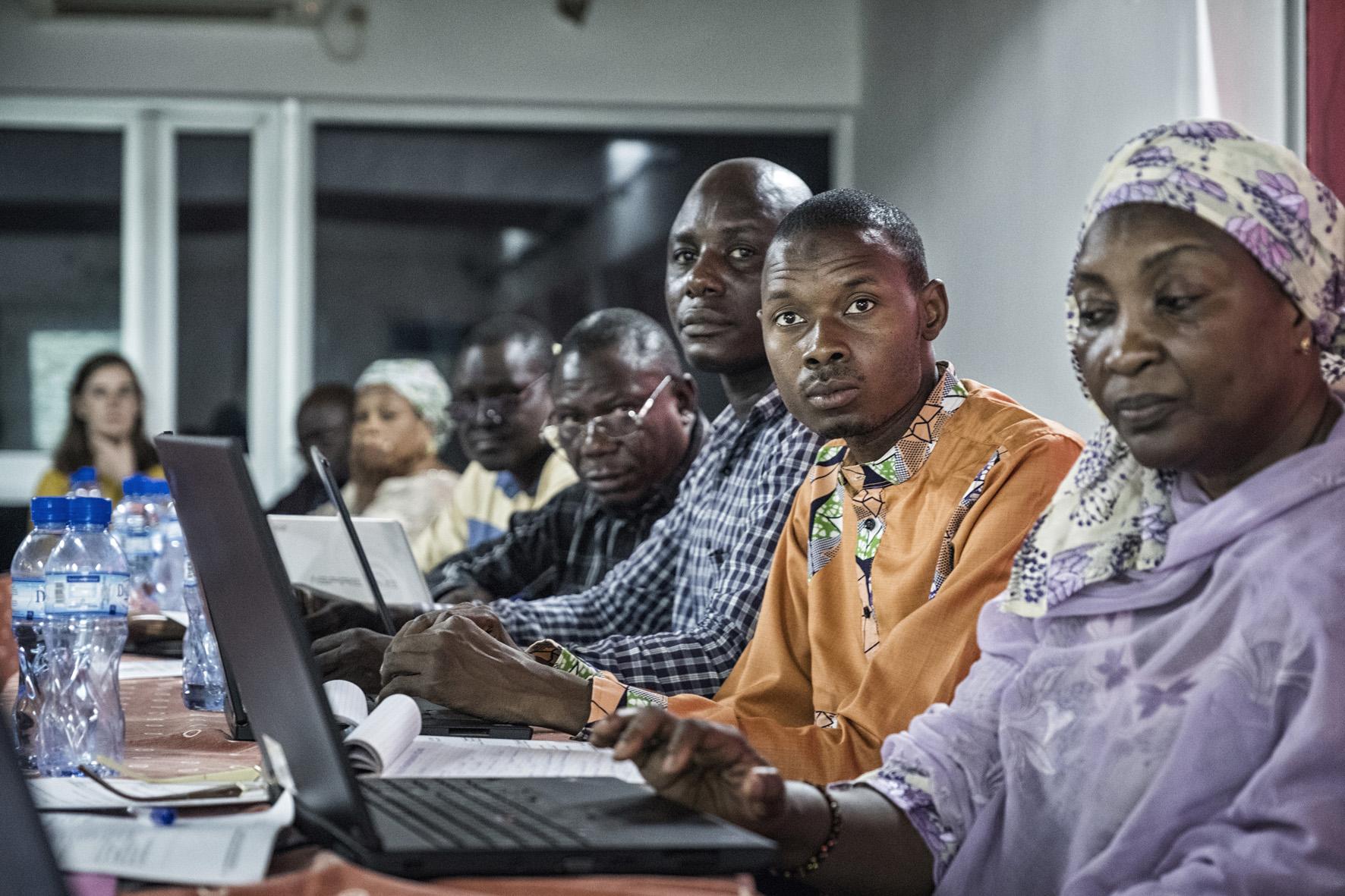
Premiers résultats de l’intervention de renforcement des capacités - Niger
Halissa HASSAN DAN AZOUMI | 03/07/2020
Inscrite dans le programme du Ministère de l’Agriculture et de l’Elevage, l’intervention renforcement des capacités est en parfaite cohérence avec les orientations du secteur élevage notamment la Stratégie de Développement Durable de l’Elevage (SDDEL 2012-2035). L’objectif de cette intervention est de faire en sorte que les acteurs étatiques, le secteur privé et les organisations de la Société Civile (OSC) liées aux programmes sectoriels de l’élevage et de la santé disposent des ressources humaines avec des savoir-faire nouveaux ou complémentaires, à même d’être déployés dans les deux secteurs. A travers des formations pertinentes et adaptées à leur besoins portant sur des thématiques d’ordre technique, managérial et comportemental, l’octroi de bourses, et la réalisation des études et expertises relevant de l’innovation, ces acteurs verront leurs capacités renforcées dans leur domaine respectif. La mise en œuvre des activités de renforcement des capacités a effectivement démarré au cours du trimestre 4 de l’année 2018. Des résultats papables ont été enregistrés au cours de l’année 2019: - 24 analyses organisationnelles, cartes de performances et plans de renforcement de capacités réalisées ; · - 24 accords de collaboration signés avec les 24 organisations bénéficiaires ; · - 14 formations au profit des 12 organisations du secteur élevage sur les thématiques relevant de la technique et du management/gouvernance avec au total 364 personnes touchées dont 33 femmes et 331 hommes. Le taux de satisfaction pour ces formations est en moyenne de 99% avec un taux de 100% pour les femmes; - 9 formations au profit de 11 organisations bénéficiaires du secteur santé sur les thématiques techniques et de gestion avec au total 178 personnes touchées dont 50 femmes et 128 hommes. Le taux de satisfaction pour ces formations est en moyenne de 98%. Seuls 2% des bénéficiaires affirment être peu satisfaits ; · - 3 études réalisées au profit du secteur Elevage. Il s’agit de l’étude sur l’importance socio-économique de l’élevage au Niger, l’étude sur le répertoire des races bovines, caprines et ovines du Niger et l’élaboration d’une stratégie de la gestion des ressources génétiques animales ; · - 9 bourses de stage dont 7 pour le secteur santé et 2 pour l’élevage. Ces bourses ont concerné des thématiques techniques. Sur le neuf (9) boursiers, on dénombre trois (3) femmes et 6 hommes ; · - Signature d’un accord de partenariat non contraignant avec le Haut-Commissariat pour la Modernisation de l’Etat dans le cadre du coaching des organisations bénéficiaires et surtout dans le cadre de la mise en œuvre d’un micro-projet de changement de comportement par rapport à la gestion de la viande et des déchets y afférant au niveau de l’abattoir frigorifique de Niamey. En 2020, le projet s’attellera à mettre en œuvre un nombre important d’activité mais surtout à veiller à ce que ses activités s’inscrivent dans un parcours de renforcement avec des étapes claires de suivi et de consolidation des acquis.
-

Creation of promotional materials to inform on Coronavirus - Uganda
Dorothy KYAMAZIMA | 03/07/2020
The Health and safety of our co-workers, employees and beneficiaries is paramount when fighting against the coronavirus. We have therefore developed materials and videos to inform our staff and National Teachers' Colleges on the safety guidelines for the coronavirus.
-

Speak Out Your Feelito! - A campaign to end gender-based violence in colleges - Uganda
Dorothy KYAMAZIMA | 03/07/2020
Speak Out Your Feelito is part of our campaign to end gender-based violence in the National Teachers' Colleges. The Teacher Training Education (TTE) Project supports the Colleges in creating a Safe Learning Environment (SLE) that will end GBV and improve the quality of education.
-

Making It Work At Home - Some video tips from Uganda on how to work efficiently fom home
Dorothy KYAMAZIMA | 03/07/2020
Covid- 19 has created the need to embrace a new way of working as an increasing number of employees are now working from home. With the digital technologies available at our fingertips, it makes it much easier to boost our productivity and work remotely. Here’s the ultimate guide to "Make It Work @ Home."
